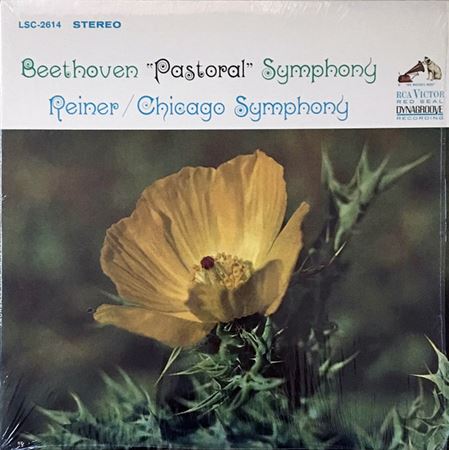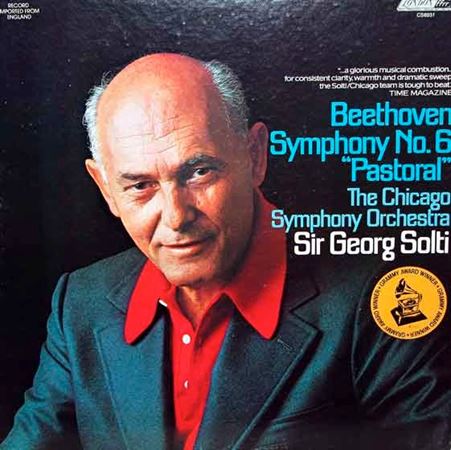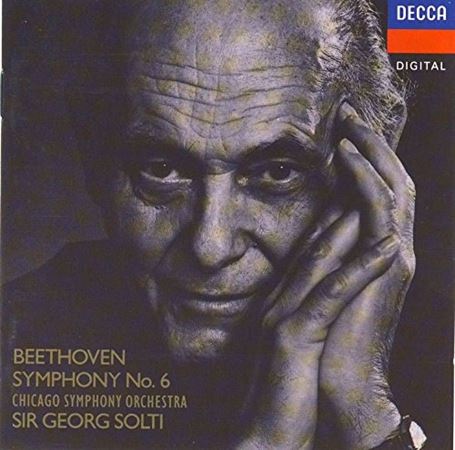Detail of title page of Beethoven’s Sixth Symphony, bearing marks by Frederick Stock and Fritz Reiner
Fritz Reiner Collection, Rosenthal Archives of the Chicago Symphony Orchestra Association
"What could come after [the Fifth Symphony]?" wrote Frederick Stock, the Chicago Symphony Orchestra‘s second music director, in Talks About Beethoven’s Symphonies. "The subtlety of Beethoven’s imagination found an answer in due time, and in his Sixth Symphony, the Pastoral, we find his thoughts expressed in a new form. Even though other composers before him and in his time had attempted to write program music, Beethoven was the first whose efforts in this direction proved to be a lasting achievement. . . . His was a poetic conception of nature’s grandeur and beauty, a faithful interpretation of her inward significance, cast in the most perfect of musical forms, the symphony."
“Our familiar picture of Beethoven, cross and deaf, slumped in total absorption over his sketches, doesn’t easily allow for Beethoven the nature-lover,” writes writes CSOA scholar-in-residence and program annotator Phillip Huscher. “But he liked nothing more than a walk in the woods, where he could wander undisturbed, stopping from time to time to scribble a new idea on the folded sheets of music paper he always carried in his pocket. ‘No one,’ he wrote to Therese Malfati two years after the premiere of the Pastoral Symphony, ‘can love the country as much as I do. For surely woods, trees, and rocks produce the echo which man desires to hear.’ They’re all here in his Sixth Symphony.”
Founder and first music director Theodore Thomas first led the Chicago Orchestra in Beethoven’s Sixth Symphony on March 2 and 3, 1894, at the Auditorium Theatre.
Sixth music director Fritz Reiner led the Orchestra’s first recording of Beethoven’s Sixth Symphony on April 8 and 10, 1961, in Orchestra Hall. For RCA, Richard Mohr was the producer and Lewis Layton was the recording engineer.
Sir Georg Solti and the Chicago Symphony Orchestra and Chorus first recorded Beethoven’s nine symphonies between May 1972 and September 1974 for London Records. The recordings were ultimately released as a set (along with three overtures: Egmont, Coriolan, and Leonore no. 3); that set won the 1975 Grammy Award for Classical Album of the Year from the National Academy of Recording Arts and Sciences. The Sixth Symphony was recorded at the Sofiensaal in Vienna on September 10, 1974. Ray Minshull was the recording producer, and Kenneth Wilkinson, and James Lock were the balance engineers.
Between September 1986 and January 1990, Solti and the Orchestra and Chorus recorded the complete Beethoven symphonies a second time, again for London Records; and again, the recordings were ultimately released as a set (along with two overtures: Egmont and Leonore no. 3). The Sixth Symphony was recorded in Orchestra Hall on May 9, 10, 14, and 16, 1988. Michael Haas was the recording producer and Stanley Goodall was the balance engineer.



This article also appears here.



